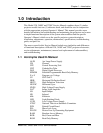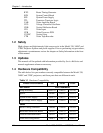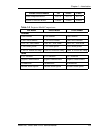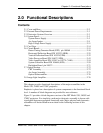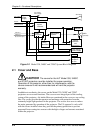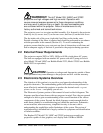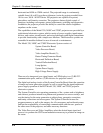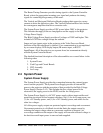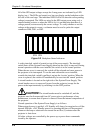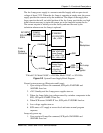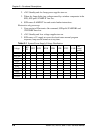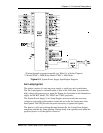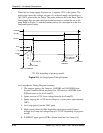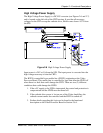
Chapter 2—Functional Descriptions
2–4 Model 330, 340SC, and 370SC Service Manual
horizontal and 45Hz to 120Hz vertical. The projected image is continuously
variable from 6 ft to 60 ft over throw distances (varies by projector model) from
10 ft to over 360 ft. All HJT Series 300 projectors are capable of keystone,
pincushion, and linearity correction. The projectors feature digital control of
functions, including convergence, picture adjustments, switching and diagnostics.
In addition, the projector provides the ability to control the relative brightness
anywhere on the screen.
The capabilities of the Model 330, 340SC and 370SC projectors are provided by a
sophisticated electronics system, which consists of power supplies, input/output
devices, and various circuit boards, and using both analog and digital components
to provide functionality with a simple user interface. The electronics systems are
assembled in modular fashion for ease of removal or maintenance.
The Model 330, 340SC and 370SC Electronics System consists of:
System Controller Board;
Video Processor Board;
Video Amplifier Boards (3);
Raster Timing Generator Board;
Horizontal Deflection Board;
Vertical Deflection Board;
Lamp Ignitor;
System Power Supply;
High Voltage Power Supply.
There are also image and sync signal inputs, an LED display, two (2) RS-232
communication ports, and two (2) IR receivers for projector control.
The digital and analog circuits of the System Controller Board direct the operation
of image and raster generation circuits as well as controlling the input/output and
power supply operation of the HJT Model 330, 340SC and 370SC projector
electronics systems.
The System Controller sets operating parameters of the system such as brightness
and contrast, produces internal test patterns and generates on-screen overlays, and
sets the timing for the raster generation to adjust phase, geometric corrections,
uniformity corrections and convergence. The System Controller houses the
program memory as well as the memory for all convergence and uniformity maps,
and has the responsibility of controlling communication with the user, power to
the other areas of the projector, and other necessary functions.
The Video Processor and Video Amplifiers select the desired input signal and
process it to produce the CRT beam modulation necessary to produce an image on
the raster.





